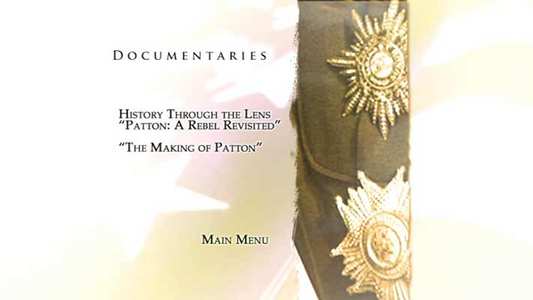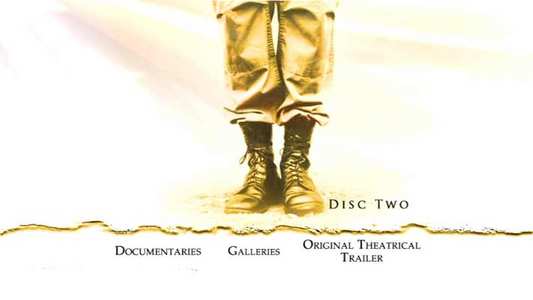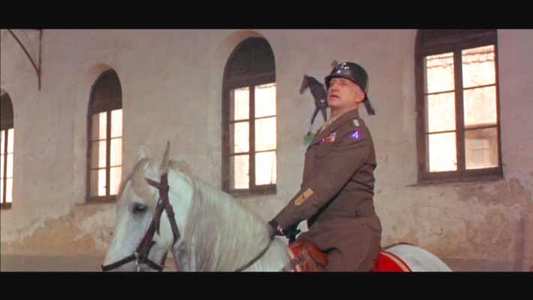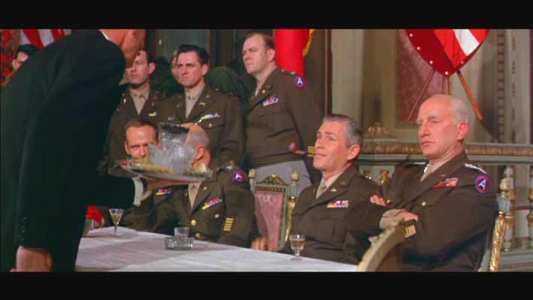Review of Patton (Special Edition)
Introduction
General George S.Patton. I don`t think there are many people who don`t immediately think of the image of an immaculately dressed soldier in front of a giant US flag. Patton was a soldier of the old school and was as out of place during his time period as he would have been during the more modern military era.
Patton is one of the more famous Generals of the Second World War, and not only for his battle record. Patton was a controversial figure who generally took one step forward and then two back. Impressive victories such as the liberation of Messina were followed by setbacks like the slapping of two Privates in hospital. The men in question were suffering from battle fatigue and shock, but Patton was old school and didn`t understand this, so berated them as the cowards he believed they were. Controversies like this sidelined him for long periods during the war, a war he wanted to lead from the front at all times, believing that he had a destiny to fulfil and that glory was there for the taking. Although it angered Patton no end, his sidelining also confused the German High Command as they successively believed that each time Patton was moved from the frontline was merely a precursor to a Patton-led invasion for either Southern France or the Balkans.
Patton was a Cavalryman at heart and cultivated a flash image of immaculate uniform (jodhpurs, riding boots and heavily polished helmet) and ivory-handled revolvers. Patton believed this image would inspire those under his command, despite the public`s perception that Patton was an anachronism who was despised by his troops. This perception was shattered upon his death in a traffic accident when around 20,000 troops volunteered to be his pall bearers.
The process of making a film about the larger than life General started in 1953, but did not become a reality until 1970. After buying the rights to two biographies (Patton: Ordeal and Triumph by Ladislas Farago and A Soldier`s Story by Omar Bradley), a young Francis Ford Coppola was given the task of writing the first script for the film. This script was then rewritten by Edmund H.North and Omar Bradley (Patton`s old war comrade, a General himself) was brought on board as military advisor.
George C.Scott was cast as the main man alongside Karl Malden as General Omar Bradley, the former really immersing himself in the role that has been called "one of the great performances of all time". This rather impressive albeit long piece won seven Oscars in 1971; Best Actor in a Leading Role, Best Director, Best Picture, Best Art Direction-Set Decoration, Best Film Editing, Best Sound and Best Writing, Story and Screenplay Based on Factual Material or Material Not Previously Published or Produced. That last one is a bit of a mouthful, eh?
Anyway, in contrast to the character he was playing, George C.Scott refused to accept his Oscar as he did not feel himself to be in any competition with other actors. Frank McCarthy, the film`s producer, accepted the award on Scott`s behalf at the ceremony, but then returned it to the Academy the next day as per Scott`s wishes.

Video
The cinematography on this film is extremely impressive, using the short-lived Dimension 150 system. Only two films were made using Dimension 150, the epic that is The Bible and Patton. The picture quality is superb, there are inevitably going to be artefacts or damage on a print this old, but I couldn`t find any.

Audio
Mix of audio tracks with subtitles. Nice DTS soundtrack, although the explosions and gunfire sound as flat as they would have done in the cinema. On the plus side, Jerry Goldsmith`s score sounds incredibly impressive, especially the Patton March. And anyone who doesn`t have hairs standing up on the back of their necks upon hearing those echoed trumpets clearly has something wrong with them…

Features
Original Theatrical Trailer - 4 ½ minutes long!
Patton: A Rebel Revisited - a documentary on Patton and the making of the film., containing interviews with both real-life aides to Patton, people involved with the film and Patton`s own grandson. One of the notable inclusions in this documentary is a small piece by Oliver Stone who states that Nixon watched this film endlessly and that it actually inspired him to bomb Cambodia, which certainly qualifies as one of the most stupid statements to come out of Hollywood for some time.
Patton: A Tribute To Franklin J. Schaffner - a documentary on the now deceased `gentleman` director that understandably focuses on Patton.
Production Still Gallery - normally these are quite boring, but this one has the added attraction that it is set up as a slideshow accompanied by Jerry Goldsmith`s complete musical score. Novel twist for an extra (and it doesn`t end there…).
Behind The Scenes Gallery/Production Stills Gallery - slideshow as before, this time accoimpanied by an audio essay on Patton by Charles M.Province, founder and President of General George S.Patton Junior Historical Society.

Conclusion
Although Patton was the subject of this picture, he was never presented as the archetypal hero. Rather he was presented warts and all, for better or worse. You could simultaneously admire the man for his achievements and loathe the way he acted. Patton was definitely an anachronism, a General whose style of soldiering went out of fashion centuries before. Patton was not only a soldier, but a military historian. He studied tactics of all the famous military Commanders, which was how he defeated Rommel in Africa, but this made him a bit predictable and also foolhardy.
Patton aspired the glory of all the famous Commanders who had preceded him in history and he loved war for the sake of war, not really considering the consequences of his actions. This is illustrated in the film during the segment on Sicily, where Patton disobeys orders from Eisenhower to support Montgomery and pushes up North to Palermo before driving East to Messina to grab Montgomery`s glory. Talking to the more level-headed Bradley about his victories, Bradley asks him about the effect on the ordinary soldier. Patton just stares uncomprehendingly at his colleague, before dreaming of his next great battle.
It is believed in some circles that Patton is an attempt to glorify war, and on the face of it there may just be some justification for thinking that. Look below the surface though, and you can see that isn`t so. The film shows Patton`s war from his own unique point of view. Patton loved war and admits it, but balance is provided by the views of Bradley, who seemed to be a more human General. George C.Scott is so successful at immersing himself into his role that the viewer never once questions that the man on the screen is anyone but Patton. Karl Malden is also superb as the General who first works for Patton and then rises above him in the ranks and sees the roles reversed. Bradley is the voice of reason against Patton`s ruthlessness and drive for glory.
This film lasts for nearly three hours and covers the salient points of Patton`s career during the Second World War. It doesn`t feel that long either, despite the inclusion of an intermission about half way through, something I`ve not seen on DVD since Lawrence of Arabia.
Credit needs to go to all who were involved in this film, particularly the two leads and the director. Patton is a superb film about a flawed man who probably influenced the outcome of one of history`s greatest conflicts more than he is credited for. You don`t have to like the man, and I don`t from what I`ve seen and read, but you have to give credit for the way he lead his Army to victory after victory. In civilian life you wouldn`t want this man as your friend, but by god you`d want him on your side in war…
Your Opinions and Comments
Be the first to post a comment!